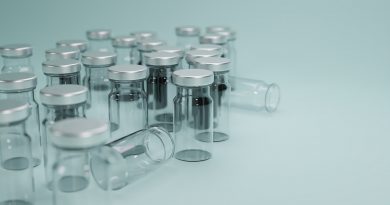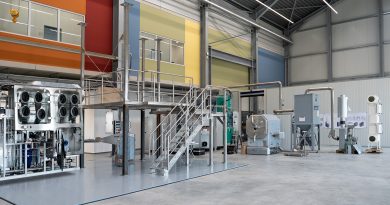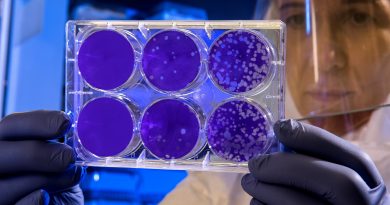Moderna and Lonza partner up to manufacture COVID-19 vaccine
Moderna, a clinical-stage biotech developing messenger RNA (mRNA) therapeutics and vaccines, and Swiss pharma giant Lonza today announced the introduction of a project for a 10-year strategic partnership against COVID-19.
The agreement to allow Moderna’s mRNA vaccine (mRNA-1273) to be manufactured on a considerably larger scale. It will also support the manufacture of additional Moderna products in future.
Lonza’s Chairman and CEO, Albert M. Baehny said:
“Moderna’s technology represents a significant opportunity to change the way we protect people against disease.”
Moderna’s mRNA COVID-19 vaccine to be manufactured in the U.S. and Switzerland
Under the terms of the deal, the companies intend to build manufacturing suites at both sites at Lonza’s facilities in the United States and Switzerland for the manufacture of Moderna’s mRNA COVID-19 vaccine. Technology transition is scheduled to begin in June 2020, and the companies are preparing to produce the first batches of mRNA-1273 vaccine in July 2020 at Lonza USA.
Over time, the parties plan to create additional manufacturing suites within Lonza’s global facilities, effectively enabling the manufacture of material equal to up to 1 billion doses of mRNA-1273 per year for use worldwide, considering the currently planned dose of 50 μg.
Stéphane Bancel, Chief Executive Officer, Moderna stated:
“We are very pleased to partner with Lonza, which shares our commitment to rapidly addressing this pandemic which has created a global health crisis. This long-term strategic collaboration agreement will enable Moderna to accelerate, by 10-times, our manufacturing capacity for mRNA-1273 and additional products in Moderna’s large clinical portfolio. Lonza’s global presence and expertise are critical as we scale at unprecedented speed. Our common goal is to potentially enable manufacturing of up to 1 billion doses of mRNA-1273.”
BARDA will endorse mRNA-1273 COVID-19 projects for late-stage clinical development. Lonza’s expertise in expanding revolutionary pharmaceutical production, including supporting over 50 commercial licences across regulatory jurisdictions, will help Moderna for global supply.
About the mRNA-1273 COVID-19 vaccine
mRNA-1273 is an mRNA vaccine against SARS-CoV-2 encoding for a prefusion stabilized type of the Spike (S) protein, which was nominated by Moderna in partnership with researchers from the National Institute for Allergy and Infectious Diseases (NIAID) Vaccine Research Center (VRC), a member of the NIH.
The positive benefits of a prophylactic vaccine mRNA strategy include the ability to incorporate multiple mRNAs into one single vaccine. Potential benefits also include quick discovery to respond to progressing pandemic risks and manufacturing agility derived from the platform’s nature of mRNA vaccine design and distribution. Seven of Moderna’s mRNA prophylactic vaccine candidates for diseases including Zika virus have shown promising results in recent studies.
mRNA-1273 Clinical Trials
On April 27 2020, Moderna announced that it submitted an Investigational New Drug (IND) application to the FDA for Phase 2 and late stage studies of mRNA-1273 if the safety data from the Phase 1 study is positive.
About Phase 2
Moderna has received preliminary reviews from the FDA on the nature of the proposed Phase 2 trial, scheduled to begin in the second quarter of 2020. This research would determine the safety, reactogenicity and immunogenicity of two mRNA-1273 vaccines administered 28 days apart. Each participant will be given a dose of placebo, 50 μg, or 250 μg. The organisation plans to enrol 600 healthy volunteers in two cohorts of adults aged 18-55 (n=300) and older adults aged 55 and over (n=300). After the second vaccine, the patients will be followed up over 12 months.
About Phase 1
The very first participant in the NIAID-led Phase 1 study of mRNA-1273 was dosed on March 16, 63 days from sequence selection to Phase 1 study dosing. The Phase 1 study, included the participation of 45 healthy individuals ages 18-55 years in the existing three dosage cohorts (25 μg, 100 μg, and 250 μg). The research enrols an extra six cohorts: three older adult cohorts (age 56-70) and three older adult cohorts (age 71 and over). Once available, data will be reported from the initial cohort of healthy adult participants aged 18 to 55 years.
For more info please visit: https://www.modernatx.com





